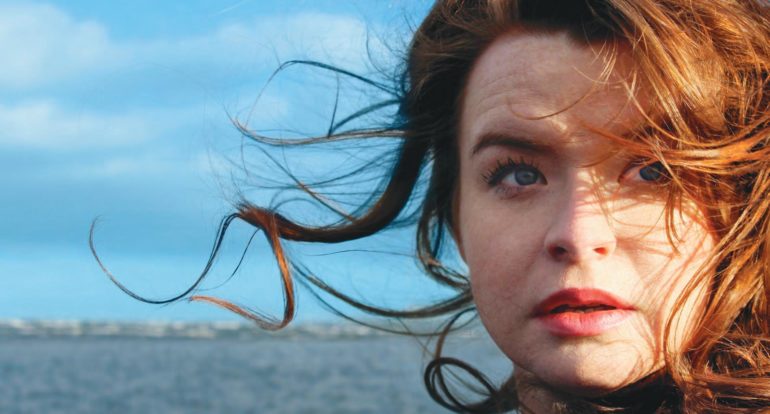Where do the intense friendships we have all had disappear to? It seems absurd to the younger versions of us that the people we know better than we know our families will, in the future, be distant memories, cleaved out of our lives as if death has paid a visit. For the briefest of moments these relationships flamed, and we see them frozen in time, perennially youthful, even the pain forgotten in a haze of nostalgia.
In We Ourselves, Paul Mercier’s adaptation of his own play, Sarah (Caitríona Ennis), Mikey (Gavin Drea), Úna (Seána Kerslake), Aonghus (Paul Reid), Eimear (Catherine Walker), Killian (Aiden Gillen) and Declan (Declan Conlon) are seven friends who a long time ago spent time working in a factory in Germany. What Mercier presents us with is extended monologues from all seven at various times in their lives. We get subjective readings of various arguments, funny stories, clouded memories, broken promises, possibilities of love and bitter regrets. The characters are older, experiences have added perspective, though for some it is too little too late. The film begins with Sarah wandering through the factory in Germany and ends with the final monologue from Declan (now Deaglan don’t you know), a little drunk in Dublin which brings it all together both movingly and thematically, with regret piercing through the memories. In between is a messy lifetime, going by in the blink of an eye.
We Ourselves is stagey (deliberately so), a touch maddening and uneven in the way that these kinds of stories can be. It is an episodic structure with some sections appealing more than others depending on the audience. Mercier uses the camera very well to suggest confinement and pressure and the set design adds plenty, giving each character something to do and a living breathing space to react to. The stories they tell are realistic, naïve and the sort of adventurous nonsense they only being away from home can produce. The monologues also have a cumulative quality, with each story told adding to the shared history and making the audience think again about certain characters. We are all the heroes of our own story. Others may not feel that way. It has plenty to say about mass emigration from Ireland and the appalling roar of the Celtic Tiger but is quite subtle about it. In that regard some of the characters become very successful, some less so. The dialogue is brilliant, with each turn of phrase polished up to a shine. Words mean everything here, even the wrong ones.
This will not be a film for everyone. The structure will frustrate some and if the beginning distances you from the concept you may well have trouble staying the course. But with a little bit of patience you will fall in step with the rhythm and be amply rewarded. The cast are terrific and up to task of this wordy (and worthy) script, with Conlon lingering the longest in the memory as he brings the story home beautifully. If you can give yourself over to it, We Ourselves is a trip well worth taking.


